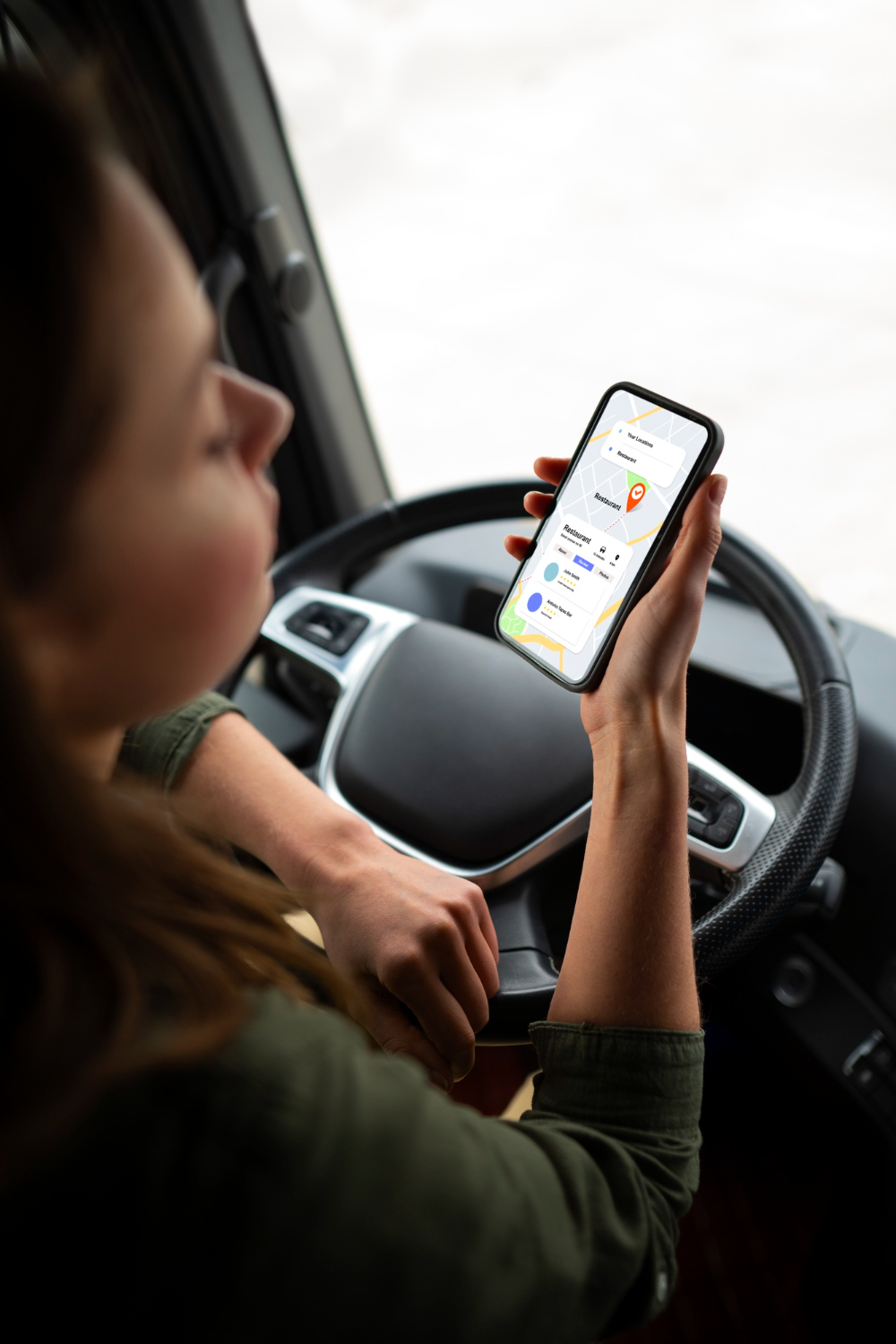Unlocking Business Potential with Custom Uber Clone Solutions

Table of Contents
ToggleThe global ride-hailing industry is expanding at an unprecedented pace, and apps like Uber clone have set the gold standard for on-demand services. However, not all businesses have to reinvent the wheel to tap into this lucrative market. By leveraging custom Uber clone solutions, companies can create tailored platforms that address specific customer needs, streamline operations, and unlock immense growth opportunities.
In this blog, we’ll explore how custom Uber clone solutions can revolutionize your business, the features that make them indispensable, and the steps to ensure their success.
Why Invest in a Custom Uber Clone Solution?
1. Rapid Market Entry
Building an app from scratch can take months, if not years, and requires significant resources. Custom Uber clone solutions provide a pre-built framework that can be quickly adapted to your brand and business model, allowing faster deployment and market entry.
2. Cost-Effectiveness
Custom Uber clone solutions eliminate the need for extensive development time and resources. By using a ready-made architecture, businesses can save on development costs while still benefiting from tailored features.
3. Scalability
Whether you’re starting small or targeting a larger audience, these solutions are designed to scale as your business grows. Adding new features, expanding to new regions, or accommodating more users becomes seamless.
4. Versatility Across Industries
While Uber clone solutions are primarily associated with ride-hailing, they can be customized for other industries, including food delivery, logistics, healthcare, and more, making them a versatile tool for the on-demand economy.
Key Features of a Custom Uber Clone Solution
1. User-Friendly Interface
A seamless and intuitive user experience is non-negotiable. Your app should feature an easy-to-navigate design for both customers and service providers.
2. Real-Time GPS Tracking
Real-time location tracking is essential for ride-hailing apps, enabling users to track their rides and ensuring accurate pickups and drop-offs.
3. Multiple Payment Options
Integrating secure and diverse payment gateways, such as credit cards, digital wallets, and cash payments, enhances customer convenience.
4. Robust Admin Dashboard
A centralized dashboard allows administrators to monitor operations, analyze data, and manage drivers, users, and transactions effectively.
5. Dynamic Pricing
Dynamic pricing adjusts fares based on demand, ensuring optimal resource utilization during peak hours.
6. Multi-Language and Multi-Currency Support
To cater to a global audience, the app should support multiple languages and currencies.
7. Advanced Analytics
Built-in analytics tools help businesses track performance metrics, understand customer behavior, and make data-driven decisions
Custom Uber Clone Solutions Across Industries
1. Ride-Hailing
The most common use case, ride-hailing apps connect passengers with drivers, offering features like ride scheduling, fare estimation, and live tracking.
2. Food Delivery
Apps like Uber Eats have revolutionized the food delivery sector. A custom solution can include restaurant listings, menu browsing, and real-time order tracking.
3. Logistics and Freight
Uber clone apps can streamline freight and logistics operations by connecting shippers with drivers, enabling live tracking and real-time updates.
4. Healthcare
On-demand apps for healthcare can connect patients with doctors, schedule appointments, and provide teleconsultation options.
5. Car Rentals
Custom apps can facilitate short-term and long-term car rentals, with features like vehicle selection, insurance integration, and flexible pricing.
Challenges in Developing a Custom Uber Clone Solution
1. High Competition
The on-demand market is saturated with players, making differentiation essential.
Solution: Focus on a niche or add unique features that address specific customer pain points.
2. Real-Time Functionality
Developing real-time features such as GPS tracking and instant notifications can be technically challenging.
Solution: Use robust APIs and advanced databases like Firebase to ensure smooth real-time functionality.
3. Data Privacy and Security
With sensitive user data at stake, ensuring security is critical.
Solution: Employ end-to-end encryption, secure payment gateways, and comply with data protection laws like GDPR.
4. Driver and User Onboarding
Attracting drivers and ensuring user adoption can be difficult initially.
Solution: Offer incentives for early adopters and invest in effective marketing campaigns.
Steps to Build a Successful Uber Clone App
1. Define Your Niche and Goals
Identify your target audience, understand their needs, and define what you aim to achieve with your app.
2. Choose the Right Technology Stack
Selecting the right technology stack is crucial for app performance. Popular choices include:
- Frontend: React Native, Flutter
- Backend: Node.js, Python
- Database: MongoDB, MySQL
- Cloud: AWS, Google Cloud
3. Partner with an Experienced Development Team
Collaborate with a team that has expertise in building on-demand applications. Ensure they understand your business goals and can deliver a tailored solution.
4. Prioritize Testing
Thoroughly test your app for bugs, performance issues, and security vulnerabilities before launching it.
5. Focus on Marketing
A well-planned marketing strategy, including social media campaigns, referral programs, and targeted ads, is essential to attract users.
Benefits of Custom Uber Clone Solutions for Businesses
1. Enhanced Brand Identity
Custom apps allow businesses to integrate their branding, helping them stand out in a competitive market.
2. Improved Customer Loyalty
Tailored features and a seamless user experience can significantly enhance customer satisfaction and loyalty.
3. Increased Operational Efficiency
Automation of processes like booking, payments, and reporting reduces manual intervention, improving overall efficiency.
4. Higher Revenue Potential
Features like dynamic pricing, subscription models, and premium services can boost revenue streams.
5. Flexibility to Innovate
Custom solutions give businesses the flexibility to experiment with new features and services, staying ahead of industry trends.
Future Trends in Uber Clone App Development
1. Integration of AI and Machine Learning
AI can enhance user experience through features like route optimization, demand forecasting, and personalized recommendations.
2. Autonomous Vehicles
With the rise of autonomous vehicles, future-ready apps must integrate features to support driverless operations.
3. Sustainability Initiatives
Eco-friendly options, such as electric vehicles and carbon footprint tracking, are becoming increasingly important to users.
4. Blockchain Technology
Blockchain can ensure secure and transparent transactions, especially for multi-party interactions
Conclusion
Custom Uber clone solutions are a game-changer for businesses aiming to enter or expand in the on-demand economy. By offering scalability, cost-efficiency, and the ability to tailor features to specific needs, these solutions provide a robust foundation for growth.
However, success requires more than just deploying an app. Businesses must focus on delivering a superior user experience, staying ahead of technological advancements, and adapting to market dynamics. With the right strategy and execution, a custom Uber clone app can unlock immense business potential and position you as a leader in your industry.

KYC Verification: Strengthening Financial Integrity Through Identity and Transaction Monitoring

Deepfake Detection: Combating AI-Generated Manipulation with Liveness Detection

Custom CRM Solutions: Transforming the Way Businesses Build Relationships

MRI Shielding Companies | Innovative Shielding for Hospitals

The Rise of Real Estate Tokenization Platforms: A New Era for Global Investors

Why Institutional Investors Are Eyeing Tokenized Real-World Assets

How Can AI Chatbots Improve Customer Support?
